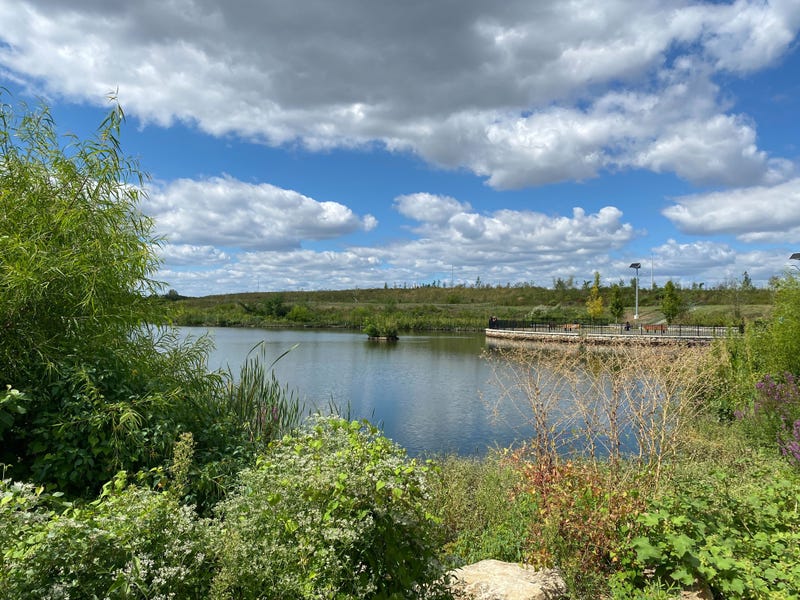
CAMDEN, N.J. (KYW Newsradio) — Cramer Hill Waterfront Park in Camden is being touted as one of the many success stories of the 1972 Clean Water Act. Local, state and federal officials gathered at the confluence of the Delaware and Cooper rivers Thursday to celebrate the legislation’s 50th anniversary.
“What you see behind us is the end result of decades of work and investments,” Congressman Donald Norcross said. He represents Camden County and parts of Gloucester and Burlington counties.
Norcross noted that the waterway is now designated Grade 1, the highest rating for cleanliness. It’s a far cry from when Norcross was growing up in Pennsauken, fishing in the river — and getting in trouble with his mother for swimming in it.
“We need to continue this change, so that our children will not only want to canoe, but swim — and come home and not be afraid of Mom saying ‘What did you just do!’”
The site of the park was once a landfill, where unregulated discharge went into the Delaware and Cooper rivers.
New Jersey Department of Environmental Protection Commissioner Shawn LaTourette says the Clean Water Act has not only created public spaces like this but it’s also saved lives.
“When we talk about creating a linear waterfront park in the City of Camden, mayor, we promote growth and opportunity and a strong economy,” LaTourette said. And the work is far from finished.
“Because as much as we should be proud and give ourselves and one another a pat on the back for the good work of the last 50 years, it has not been enough,” LaTourette said.
He says the public discussion of projects like this centers around a false narrative, that we can invest in the economy or the ecosystem but not both.
“Because environmental health is public health is economic health,” he said.
The federal government says it’s committed to ensuring public places like Cramer Hill and many others stay clean while also adding more projects in the future.
“Over the next five years, the City of Camden will receive up to $150 million for just these types of projects,” EPA administrator Bruno Pigott said.
Nationally, the EPA will distribute about $50 billion over the next five years to make impactful changes that people can enjoy for decades to come.



